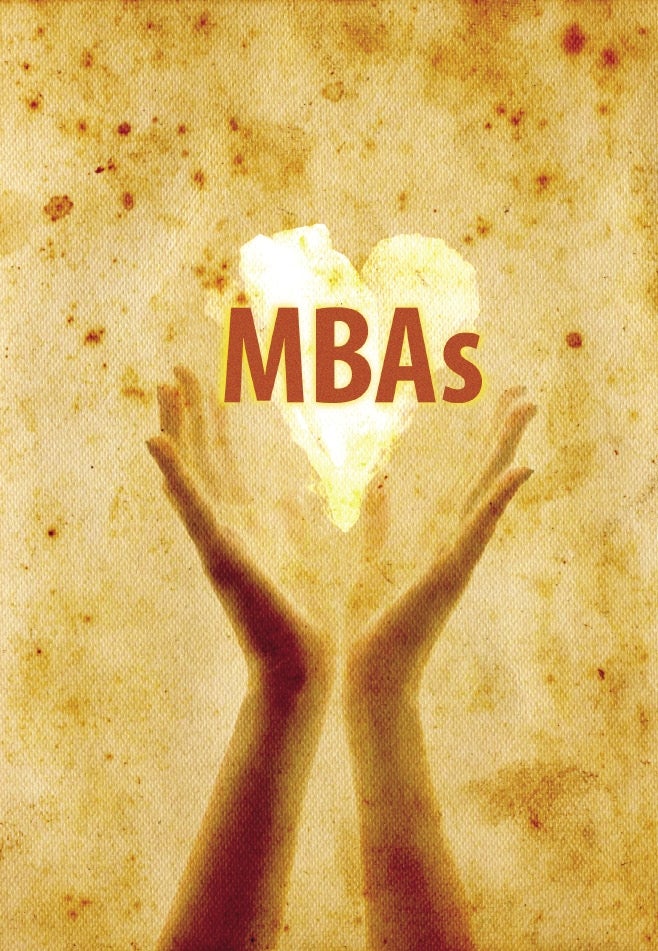Traditionally, students pursuing a master of business administration degree have set their sights on high-paying jobs in finance or accounting, frequently landing on Wall Street and in financial districts in other major cities.
But in recent years, area education officials and professionals in the nonprofit sector have seen a new wave of MBA graduates moving into the nonprofit world, for a variety of reasons.
“A broader range of MBA students are thinking about the nonprofit sector, and exploring it and learning that it’s a pretty rich and rewarding sector to work in,” said Bart Morrison, director of the MBA program at Assumption College in Worcester.
The Professionalization Of Nonprofits
This trend may be partially rooted in the transformation of the industry itself. Morrison said nonprofits have become more professional over the last generation, creating business opportunities similar to those found in the private sector.
The more complex organizations of today “need professional managers, whereas in previous generations, managers were there because primarily, and sometimes exclusively … of the mission,” according to Morrison.
Martin Richman, vice president of philanthropy for the Milford Regional Healthcare Foundation, agreed that the complexity of the industry is drawing more professionals with advanced degrees to the field. In fact, if you don’t have one, you might not be qualified for a leadership role at a nonprofit.
“Advanced degrees are almost the standard because the business of running these organizations becomes more and more complex over the years,” Richman said.
Richman holds a master’s degree in communication, and he said there are a number of different degrees that are applicable in the field. But he admitted an MBA has “a little more cache” than others.
As for the complexity of the nonprofit industry today, Richman attributes it to more stringent government regulation, greater financial accounting standards, and more competition for funding within the field.
More Passion For The Work
Another reason today’s MBA grads find nonprofit careers alluring is the job satisfaction factor, Richman said. He thinks today’s young professionals are more socially-conscious, and prefer to apply their knowledge in a mission-based job.
This is true of the MBA-holding business professionals that work at Seven Hills Foundation, a Worcester-based nonprofit that serves people with intellectual disabilities, said Sharon Brownfield, the agency’s chief learning officer.
There’s no way that salaries offered in the nonprofit world can compete with the private sector, Brownfield said, but those who choose it have a passion for their work.
“There’s a wide array of jobs where you can apply your skills to make lives better, and make the organization sustainable for the long term,” Brownfield said.
That’s not to say that MBA holders who choose the nonprofit sector starve. Morrison, the Assumption professor, said these careers can be lucrative, and people can build wealth by working their way up the ladder in the nonprofit industry.
Colleges Respond
Some area colleges and universities have responded to increased interest in the nonprofit industry by creating concentration programs designed to prepare students for careers in that field.
The MBA concentration in nonprofit management that Assumption offers was established six years ago. Morrison said that of approximately 200 MBA students, about 20 are choosing this concentration, which allows them to choose up to six electives that focus on the subject.
Meanwhile, Clark University launched its MBA concentration in social change three years ago, and it has been well-received, according to Lisa Radomsky, who works in career services at Clark’s Graduate School of Management.
The shift in interest to the nonprofit field has been palpable during Radomsky’s six years at Clark. She thinks the economic recession from 2007 to 2009 prompted MBA students to reconsider the business practices of the past, and perhaps consider more altruistic career paths.
“They usually have a pretty good idea of a type of mission or vision of how to make the world a better place,” Radomsky said. “And they’re hoping that they can do that in their work.”
Radomsky noted that it can take considerable research to find the sort of job an MBA graduate is interested in, as it’s not always obvious in the industry.
Lots Of Opportunities
Luckily, there are plenty of career opportunities in Central Massachusetts, according to Radomsky. Clark has relationships with most major area nonprofits that offer internships, many of which have turned into permanent jobs for MBA grads.
And nonprofit organization executives recognize the value in hiring MBA graduates and those with other advanced degrees, said Kate Myshrall, vice president of advancement at Seven Hills. Running an organization that’s fiscally sound is a matter of survival in the nonprofit sector today, she said. And it’s in an organization’s best interest to hire administrative employees with strong business backgrounds.
“Nonprofits are a business, and they’re a big business. And they have to be run as a business to be successful,” Myshrall said.
Read more

